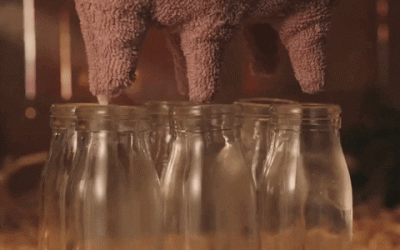CRISPR technology is here to stay—and it’s making a splash in produce.
Pairwise is a food and ag company specializing in gene editing and CRISPR technology to “transform plants and the production system.” It recently teamed up with Bayer to license a leafy-greens blend edited with CRISPR to enhance flavor.
Based in North Carolina, the company launched its first product in the U.S. under the Conscious Greens brand.
Eat your greens: Pairwise’s first goal was to remove the “wasabi” bitterness from mustard greens.
Soundbite: “We introduced the first CRISPR food in North America, and the product was a success among consumers and chefs. Now that we’ve achieved several important milestones and laid the commercial groundwork, this new licensing agreement with Bayer is the next phase in commercialization.” — Tom Adams, CEO of Pairwise
The greens are coming to a store near you in late summer/fall of this year.
ICYMI, consumers aren’t always the biggest fans of GMOs. But gene-edited foods are different.
Soundbite: “GMOs do not equal gene editing, and many gene edits are very small mutations that could have occurred naturally. Many people refer to these types of small gene edits as non-GMO or non-transgenic. It would be helpful if going forward, we try not to conflate the two. GMOs bring in transgenes from other species while gene-edited plants generally do not.” — Melinda Kliegman, PhD, director of public impact at the Innovative Genomics Institute (IGI)
Stay tuned: The leafy greens are only the beginning for Pairwise. The company has developed a seedless, thornless blackberry through CRISPR and has plans for more crops in the near future.
Short Corn Packs a Punch
Dynamite comes in small packages—which can be true with new seed technology. What’s...
Congress to EPA: What’s Your BEEF with Meat Packers?
The Environmental Protection Agency (EPA) is considering new regulations that take aim at meat and poultry processors.
And some members of Congress have a BEEF with the EPA’s proposals.
The proposed rules: In late January, the EPA released the details of its proposed “Clean Water Effluent Limitations Guidelines and Standards for the Meat and Poultry Products Point source category.”
Huh?
Basically, the EPA formally published its proposals to combat wastewater contaminants that come from slaughterhouses.
Okay… that makes more sense.
At the heart of the rules proposal is a concern from environmental groups about nitrogen and phosphorus pollutants that originate from slaughterhouses. In some cases, the wastewater goes directly into waterways. In other cases, the water goes to municipal wastewater treatment facilities.
But not everyone is on board with the EPA’s suggestions…
Congress responds: Last week, two U.S. representatives—Eric Burlison (MO) and Ron Estes (KS)—pushed back against the EPA and introduced the “Banning EPA’s Encroachment of Facilities (BEEF) Act.” If passed and signed by President Biden, the law would prohibit the EPA from finalizing, implementing, or enforcing the rule.
According to the lawmakers, the proposed rules place undue burden on small processors—costs that can be absorbed by larger companies.
Soundbite: “The… proposed regulation isn’t just an attack on family-run small businesses, it’s an attack on rural communities,” said Burlison. “These meat and poultry processors are the lifeblood of our communities. The BEEF Act… lets these hardworking Americans do what they do best, produce safe, affordable food for our families.”
University of Illinois Makes Big Mooves in Milk Production
Pump it up: Scientists led by Matt Wheeler at the University of Illinois Urbana-Champaign are...




